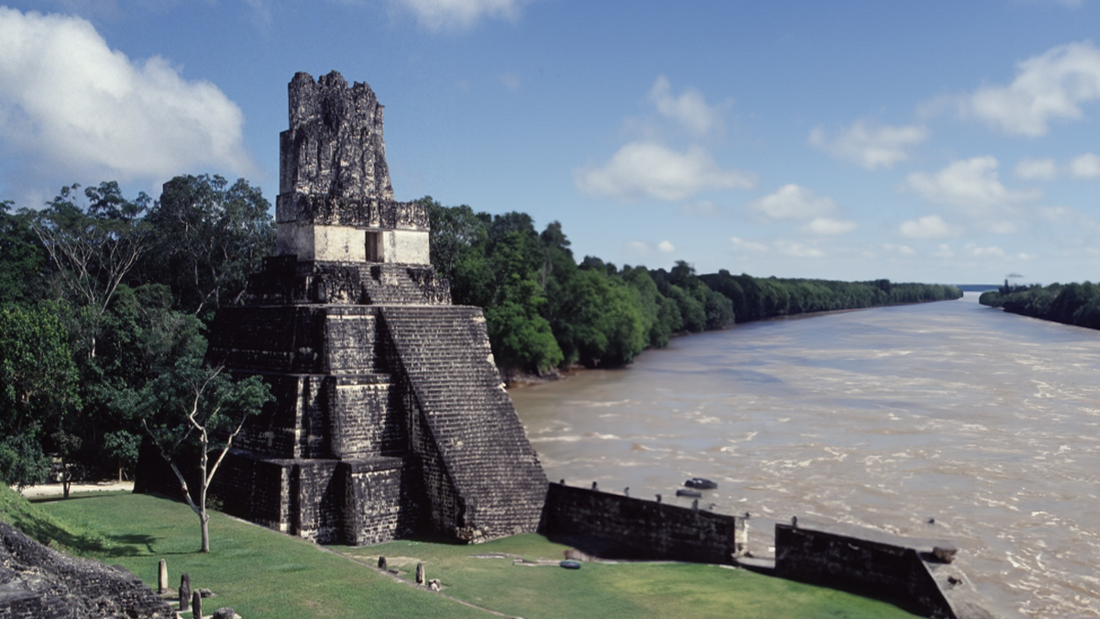
The Mississippi River's Hidden Identity Revealed
Share
In a world inundated with information, it takes a unique voice to disrupt our understanding of history and its profound impact on the present. Enter historian, researcher, and author Dane Calloway, whose groundbreaking investigation has unveiled a secret that challenges conventional wisdom about the Mississippi River. Dane Calloway's findings suggest that this mighty American river is, in fact, the Nile, a revelation that has far-reaching consequences for modern descendants of Indigenous people, often misclassified as Black or African Americans.
All is revealed as historian, researcher, and author Dane Calloway shares his investigation discoveries concerning the Mississippi River being the Nile River and details why the river is being unnaturally redirected, causing unhealthy side effects on modern-day descendants of the Indigenous people to America, misclassified today as Black or African Americans.
Play this podcast below or click here to view it via the Dane Calloway Podcast channel
article continues below
Unraveling the Connection
The Mississippi River as the Nile: Dane Calloway's research takes us on an astonishing journey that transcends time and geography. He proposes a theory that the Mississippi River is, in essence, the Nile River, a concept that turns our understanding of American geography upside down. By connecting historical evidence, geographical similarities, and indigenous knowledge, Dane Calloway builds a compelling case that challenges established narratives.
The Unnatural Redirection: The implications of the Mississippi River being the Nile extend beyond a mere geographical revelation. Dane Calloway delves into the unnatural redirection of the river, examining how it has been manipulated over centuries to serve various agendas. He highlights these alterations' environmental and societal consequences, shedding light on how they have disproportionately affected Indigenous communities.
The Impact on Modern Descendants: One of the most critical aspects of Dane Calloway's research is its relevance to modern-day descendants of Indigenous people, often labeled as Black or African Americans. His work suggests that understanding the true history of the land they inhabit can empower these communities, foster a sense of identity, and challenge existing racial categorizations.
Unmasking the Misclassification: Historical Misrepresentation: Dane Calloway's investigation shines a spotlight on the historical misrepresentation of Indigenous people in America. By tracing their roots to the Nile, he presents evidence that challenges the prevailing narrative that has marginalized these communities for centuries.
Reshaping Identity: The revelation of the Mississippi as the Nile offers an opportunity for modern descendants to reconnect with their Indigenous heritage. It invites them to explore a new identity that transcends the limitations imposed by conventional racial classifications.
Promoting Cultural Understanding: Dane Calloway's work serves as a catalyst for cultural understanding and reconciliation. By acknowledging the Indigenous roots of modern communities, we can foster a more inclusive and respectful dialogue about identity and heritage.
Dane Calloway's investigation into the Mississippi River as the Nile River is not merely an academic pursuit but a journey of self-discovery, environmental awareness, and historical reconciliation. It challenges established narratives, unearths hidden truths, and offers a path to empower modern-day descendants of Indigenous people.
As we delve into the depths of his research, we are invited to question our preconceptions and embrace a more holistic understanding of history and identity. In doing so, we may discover that our past holds the keys to a more inclusive and harmonious future.


1 comment
How do I get your materials on researching my ancestry please?